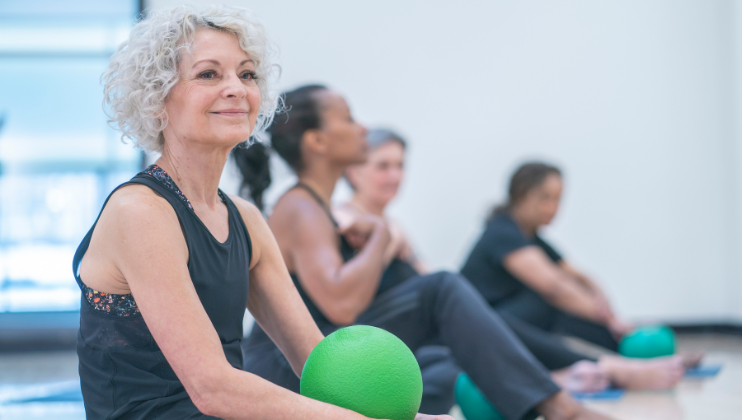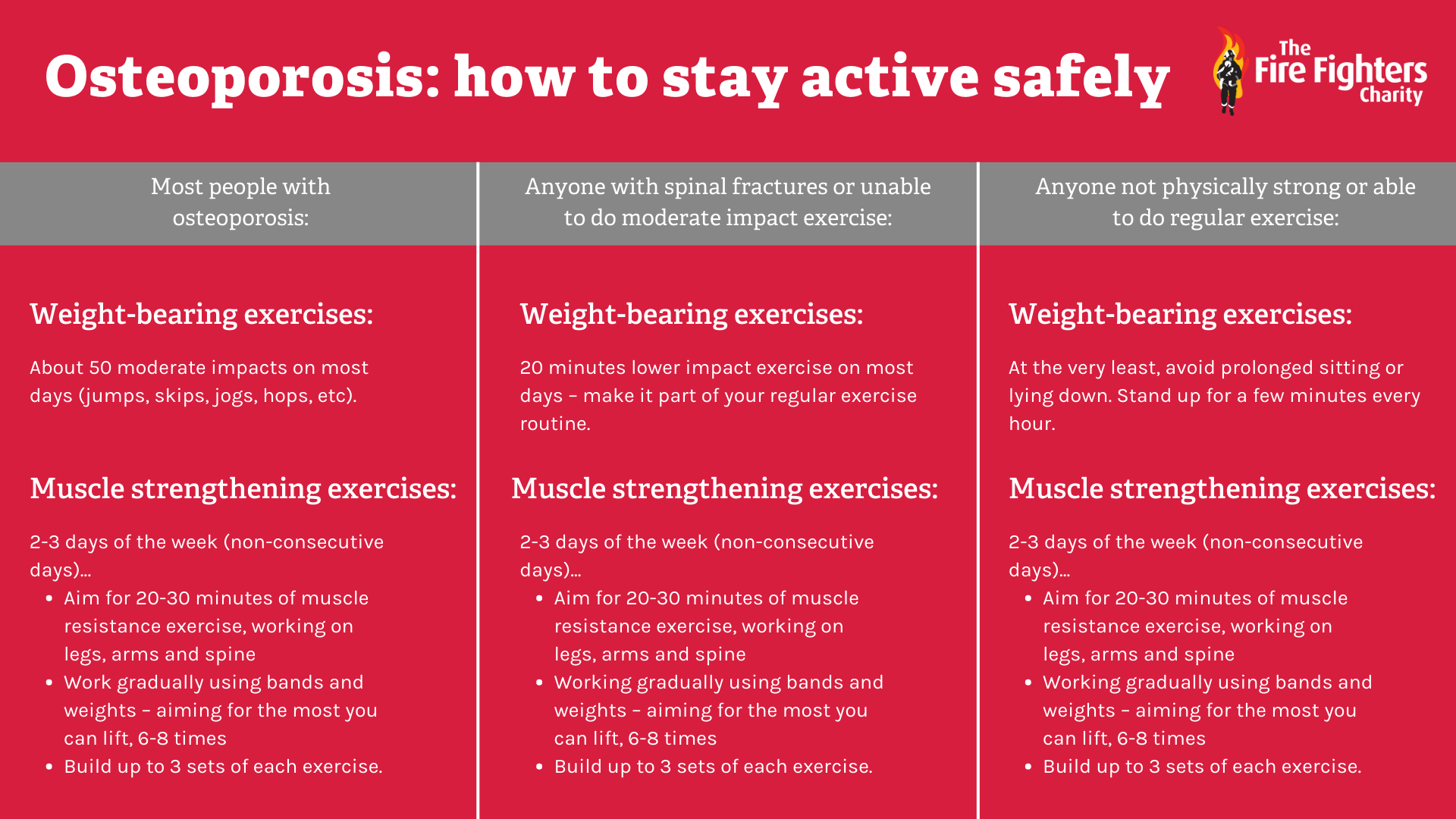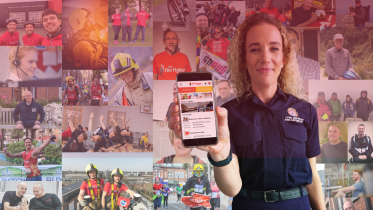Osteoporosis is a condition which weakens bone strength and makes them more likely to break. It can develop over several years, often without you knowing.
If you’ve received a diagnosis, or even if you have risk factors, ensuring you’re doing regular exercise is therefore so important.
Being physically active helps to promote good bone health, while ensuring you keep strong and maintain balance – and it’s very unlikely to cause a broken bone.Please also let us know if you find these tips helpful in the feedback section at the bottom of the article.
Please let us know if you find these tips helpful in the feedback section at the bottom of the article.
Choosing exercise and movements that work for you
There are three ways that exercise and safe movement help with bone health and osteoporosis:
- Promote bone and muscle strength
- Keep you steady
- Care for your back
Think about how these benefits apply to you in your everyday life, and whether you should prioritise any single one?
Remember, any exercise you do for your bone health should be in addition to the exercise you do for your general health. General exercise needs to incorporate some weight bearing and impact. Activities such as the following are all suitable:
- gardening
- hill walking
- housework or maintenance
- circuit training
- aerobics
- resistance training
So how much and how often should you exercise to promote your bone and muscle strength?
Weight bearing exercises, which are either done in standing (for legs) or where some body weight is supported by the arms, and resistance exercises, where you perform an activity against a restriction, such as a stretchy band or with a weight, are really good for overall strength.
What you do is up to you, but try to stick to these guidelines…
Most people with osteoporosis:
Weight bearing exercises:
About 50 moderate impacts on most days (jumps, skips, jogs, hops, etc.)
Muscle strengthening exercises, such as resistance exercises:
- 2-3 days of the week (non-consecutive days)
- Aim for 20-30 minutes of muscle resistance exercise, working on legs, arms and spine
- Working gradually using bands and weights – build up to lifting the most you can, 6-8 times
- Build up to 3 sets of each exercise.
If you have spinal fractures or are unable to do moderate impact exercises:
Weight bearing exercises:
20 minutes lower impact exercise on most days – make part of your regular exercise.
Muscle strengthening exercises, such as resistance exercises:
- 2-3 days of the week (non-consecutive days)
- Aim for 20-30 minutes of muscle resistance exercise, working on legs, arms and spine
- Working gradually using bands and weights – build up to lifting the most you can, 6-8 times
- Build up to 3 sets of each exercise.
If you are not physically strong or able to do regular exercise:
Weight bearing exercises:
At the very least avoid prolonged sitting or lying down. Stand up for a few minutes every hour.
Muscle strengthening exercises, such as resistance exercises:
- 2-3 days of the week (non-consecutive days)
- Aim for 20-30 minutes of muscle resistance exercise, working on legs, arms and spine
- Working gradually using bands and weights – build up to lifting the most you can, 6-8 times
- Build up to 3 sets of each exercise.
Here’s a handy graphic to go by – you can click on it to enlarge it:
Guidelines on physical activity for children, adults and older adults
For your general health – the UK Chief Medical Officer guidelines recommend:
- Children – 60 minutes of moderate intensity physical activity, daily
- Adults – moderate intensity aerobic activity for 150 minutes a week (could be 30 mins on 5 days of the week). This means enough to get warm, get your heart rate up, and make you slightly out of breath. In addition, muscle strengthening exercise on at least 2 days a week.
- Older adults (over 65 years) – Same aerobic activity plus improve balance and coordination on at least 2 days a week. Avoid sitting for extended periods.
You can contact our Support Line on 0800 3898820 to speak with one of our assessment practitioners about how we might be able to support you, whatever you’re going through, or register for MyFFC and visit the ‘Access Support’ tab.
Try our online courses and Groups on MyFFC
Online courses
Our full courses are designed to run over a number of weeks, to equip you with information and tools to overcome whatever life throws at you.
You can also join our Groups in MyFFC, where you can chat to others going through similar experiences and access advice and peer support. Just ensure you’re registered with MyFFC and head to the ‘Groups’ tab at the top.
Please let us know if you found this article helpful, or if there’s anything you’d like us to have focused on more in the feedback section below.






